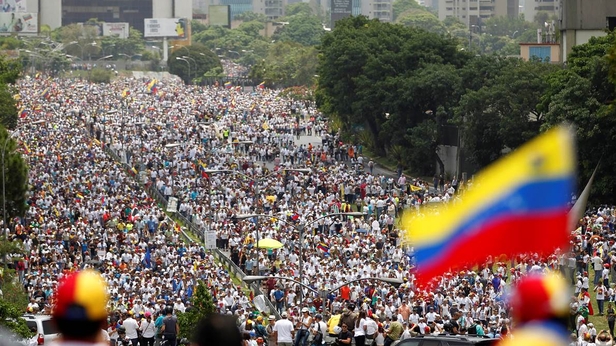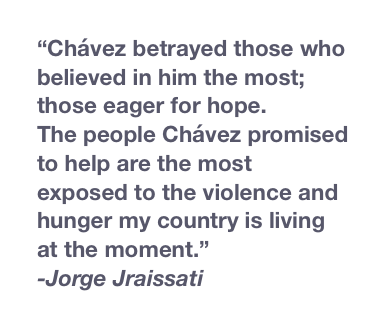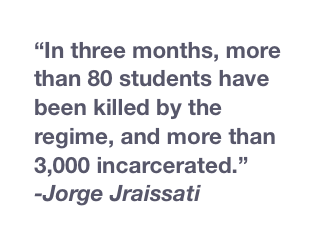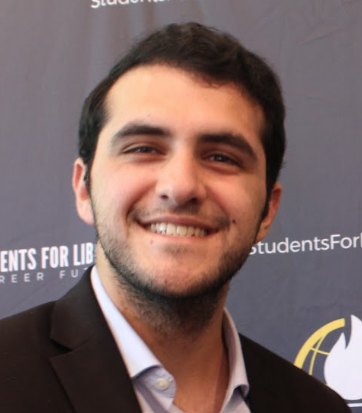
July 12, 2017
By Jessica Murphy
UW-Madison is bestowing an award to Tariq Ali, a far-left activist with a long history of praising socialist dictators. What’s concerning is his blatant disregard of the current crisis in Venezuela, a degenerative socialist nation with the state-controlled economy in ruins and millions of people starving.
The A.E. Havens Center for Social Justice at UW-Madison, a taxpayer funded entity, selected Marxist journalist, author, and filmmaker Tariq Ali as the recipient of their 2017 Lifetime Contribution to Critical Scholarship Award. The award is presented to those with a “distinguished and extensive record of scholarly achievement in the critical tradition of social thought,” according to the UW.
Ali previously spoke at a Havens Center event in fall of 2007 and will return to UW-Madison’s campus on October 19 for his award lecture entitled “1917-2017: Wars and Revolutions.”

Ali is a British-Pakistani writer who is well known in left-wing activist circles. He has met late Venezuelan President Hugo Chávez and current President Nicolás Maduro on multiple occasions and has spoken highly of both of them, specifically referencing Chávez’s apparent “victories” in various publications and lectures. He was also invited to speak at the inaugural Hugo Chávez Memorial Lecture in 2014 hosted by the Venezuela Solidarity Campaign, an organization that supports the tyrannical reigns of Chávez and Maduro.
Ali joined the International Marxist Group in 1968. The International Marxist Group, today known as Socialist Action, is a Trotskyist group based in the United Kingdom that launched various newspapers to spread Marxist ideas. Ali has been writing for the Guardian since the 1970s, is a long-standing editor of New Left Review, is a founder and current vice president of the Stop the War Coalition, and co-wrote the screenplay for South of the Border, a documentary that honors left-wing Latin American leaders such as Chávez. At the 2005 World Social Forum in Brazil, Ali was one of the “Group of Nineteen” to sign the Porto Alegre Manifesto, which consists of twelve socialist proposals ranging from implementing an international tax to canceling all debt of developing nations.
In a column for the Guardian, Ali glorifies Chávez’s fight for social rights, the poor, and the underprivileged. In reality, Chávez left a legacy of corruption. His administration was known for exchanging favors and gifts for votes come election time, mismanaged the potentially lucrative oil industry (output fell by almost a third), used oil money for social programs, forced all media stations to cover his speeches under threat of termination, rigged elections so that he could decide who could and couldn’t run, and more.
Chávez’s love of literature was of particular interest, and Ali admired how Chávez distributed a million “free” copies of his favorite book, Don Quixote, to the poor. This act is more self righteous than charitable – people were starving and Chávez cruelly chose to buy a million books that would never be read rather than feed his people. Chances are the books were burned as kindling rather than read. This clearly shows greater passion for his personal ambition than the livelihoods and health of his people – a disconnect between the socialist elite in power and the suffering Venezuelans.

Ironically, Ali commented that Chávez “had a punctilious sense of duty to his people.” Ali couldn’t be more off base considering the tyrannical government led by Chávez lacked any sense of integrity or commitment to its people. Adoration of an ideology should not blind one to the atrocities and suffering real people are enduring.
Ali often calls out western media for portraying the situation in Venezuela as a transition to a communist-style dictatorship, when it’s clear this is exactly what’s happening. Most notably, Chávez usurped all private businesses, effectively taking control over the entire economy. People knew that if they wanted to keep their jobs, they would stay silent and not disagree with the regime. It’s difficult to find dissent when everyone who speaks out is intimidated, threatened, jailed, or killed.
Venezuela, with the world’s largest oil reserves, once had potential to be the richest country in Latin America. Today, the country is in shambles – facing severe food and medicine shortages, looting and violence, deadly mass protests, and a leader who attempts to silence any dissenters by force. Latest estimates of the anti-government protests put the death toll at 90 people, the majority of them under the age of 30. The country is spiraling out of control – people are rationing toothpaste and imprisoned protesters say they are forced to eat raw pasta mixed with human excrement. Apparently this is a socialist’s paradise?
Venezuela is a poignant and relevant example of the failures of socialism. Socialists hide under a façade boasting equality, yet in practice it leads to egregious human rights violations, disintegration of democracy, and extreme poverty. Is this the equality they desire?
The strength and the courage of the Venezuelan people is immeasurable. They withstand threats, beatings, jail, starvation, intimidation, and more, and are still determined to fight. They fight for their lives, for their families, and for a better future.
I reached out to Jorge A. Jraissati, a Venezuelan student activist who has been at the forefront of the protests and fight for freedom in his country. When I told him that the UW intends to give an award to Ali, he commented that it is unfair to give an award to someone who doesn’t know what he is talking about.
Jraissati conveys the truth of his experiences and the hardships Venezuelans have endured for years under the socialist dictatorship Ali extols:
“Venezuela is a country sunk in misery, a country in which our people don’t have access to food, medicines, and jobs. Venezuela is a country with no freedom of speech, no human rights, and no opportunities to provide for our families with minimum wage less than $50 per month. A country divided, collapsed, and injured thanks to Hugo Chávez and Nicolás Maduro.
Every time I visit the poorest sectors of my country and I see the misery in their lives, I feel disappointment. Chávez betrayed those who believed in him the most; those eager for hope. The people Chávez promised to help are the most exposed to the violence and hunger my country is living at the moment.
Today, we have been fighting for our freedom for three months, and despite the brutal repression of the dictatorship, we will keep fighting. In three months, more than 80 students have been killed by the regime, and more than 3,000 incarcerated.”
In the coming months, Jraissati will be speaking with United Nations officials, in front of the European Parliament, and at various conferences to implore them to take action for the people of Venezuela and denounce the situation in Venezuela internationally.
Why is the University of Wisconsin honoring Ali, who shares anti-West conspiracies in favor of fighting for human freedom in Latin America? Ali is an anti-war activist and speaks out against human rights abuses such as honor killings, but he doesn’t bat an eye when it comes to the human rights violations in Venezuela. It shows a lack of principle to stand for values such as human rights and independence while unabashedly supporting a socialist regime that is violating all of the above. Perhaps current supporters of the socialist Venezuelan regime are too prideful to admit that they were incorrect, and rather than retreat to silence, choose to stick to their guns and support the cruel and power hungry Venezuelan leader regardless of moral qualms.
Maduro’s own administration is revolting. Venezuela’s attorney general Luisa Ortega Díaz, once loyal to the Maduro regime, is now one of his most outspoken critics. Speaking out in the name of justice and democracy has consequences in Venezuela – Díaz had her assets frozen and was banned from leaving the country last week.
Past recipients of the Lifetime Contribution to Critical Scholarship Award include far-left activists Eduardo Galeano, Noam Chomsky, and Howard Zinn.
Galeano, an Uruguayan historian and writer who openly supported the Bolivarian revolution taking place in Venezuela, also had connections with both Chávez and Maduro. An official statement released by the Venezuelan Foreign Ministry after Galeano’s death lamented that “the Venezuelan people will always remember the commitment that Eduardo Galeano always showed towards the Bolivarian Revolution and to our eternal commander, Hugo Chávez.” In honor of his dear comrade, Maduro created a special education plan for fifth and sixth graders to focus on Galeano’s works. His novel about Latin America’s exploitations by the West, The Open Veins of Latin America, gained popularity after Chávez famously offered a copy to Barack Obama at the Summit of the Americas in 2009.
Chávez considered Chomsky one of his best friends in the west, who commented “what’s so exciting about at last visiting Venezuela is that I can see how a better world is being created.” In 2011, Chomsky raised concerns that Chávez was concentrating too much executive power, which he viewed as a risk to democracy. This story is familiar – the far-left praising a socialist paradise until it starts crumbling, and then they spin the story that it was never truly socialist in the first place.
It is incredibly disheartening to see UW-Madison honor someone who callously disregards human rights violations and proudly supports the chaos, hunger, death, and despair in Venezuela – all for a political ideology.
With all odds against them, Venezuelans remain hopeful and Jorge’s words inspire those fighting for liberty:
“In these difficult times of long nights and great suffering, never stop resisting, never stop believing, and never stop fighting. We will be free.”
If you want to take real action and help Venezuelans, please consider donating to Jorge’s fundraiser for food and medicine.
You can follow Venezuelan activist Jorge Jraissati on twitter (@JraissatiJorge) for updates on their efforts to fight for freedom.